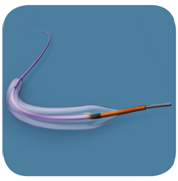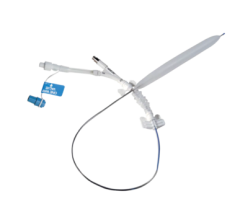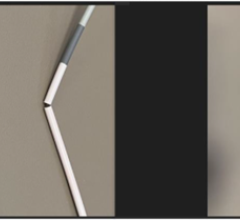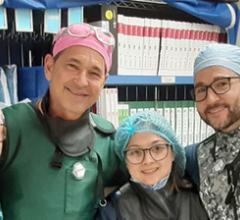
February 22, 2013 — Physicians have new tools for treating coronary chronic total occlusions (CTOs) after Abbott received U.S. Food and Drug Administration (FDA) approval this week for guidewires and balloon dilation catheters for treatment of CTOs. Abbott is the only company with FDA approvals of its everyday products for treatment of CTOs.
The FDA approval is for Abbott's HT Progress and HT Pilot guidewires and Mini-Trek balloon dilatation catheter products.
Treatment of CTOs, a 100 percent blockage in the artery, continues to be a controversial topic among cardiac specialists, though estimates indicate that 15 to 20 percent of patients undergoing coronary angiography have a CTO. While some physicians believe they are benign, others believe that CTOs are a slow, silent killer. In addition, treating CTOs with minimally invasive methods is not easy. Up until now, only a handful of specialty CTO products were approved to tackle these lesions.
While the recommended treatment for CTOs varies widely among doctors, many say coronary CTOs offer a potential growth area for patient volume in cath labs. Clinical evidence supports the treatment of CTOs if good procedural outcomes can be obtained. Patients with CTOs can experience significant improvements in quality of life if blood flow is restored to the vessel.
Clearly navigating CTOs can be difficult under 2-D angiography, which only shows a lumengram in the parts of the vessel that are not blocked. The controversy over treating CTOs often involves the guesswork involved when attempting to push wires through the occlusion without piercing the wall of the artery. However, recent advances in 3-D rotational angiography and fusion imaging with these images or computed tomography (CT) or magnetic resonance imaging (MRI) 3-D vessel reconstructions overlaid on live fluoroscopy are expected to greatly aid these types of procedures.
For more information: www.abbottvascular.com



 June 13, 2024
June 13, 2024 









